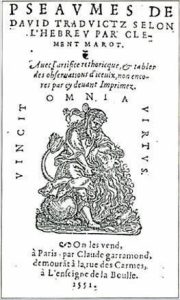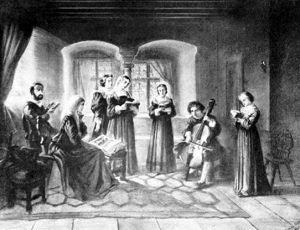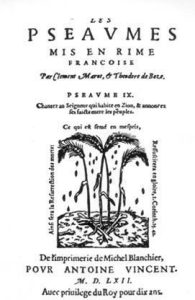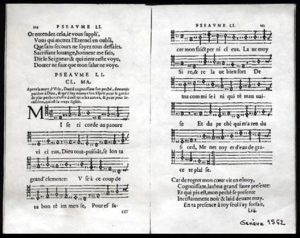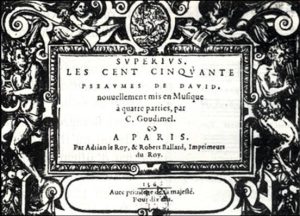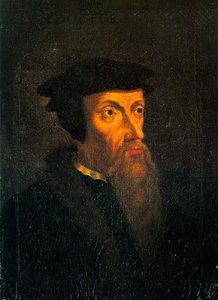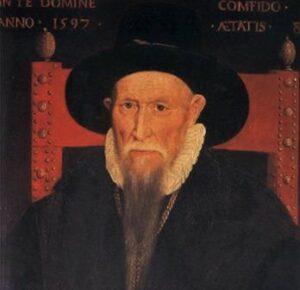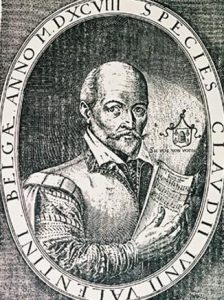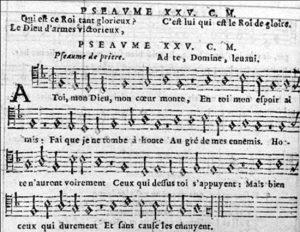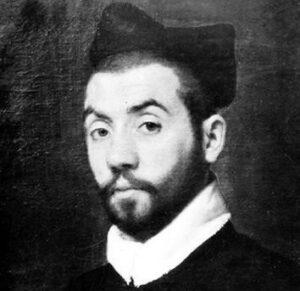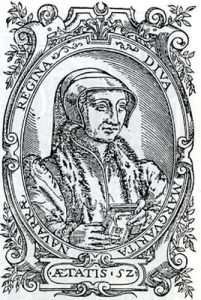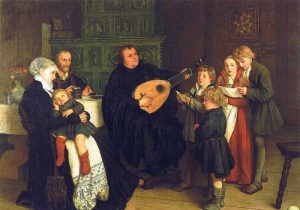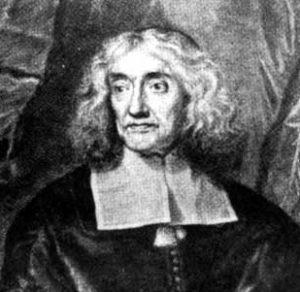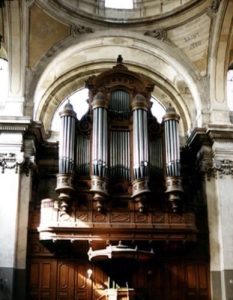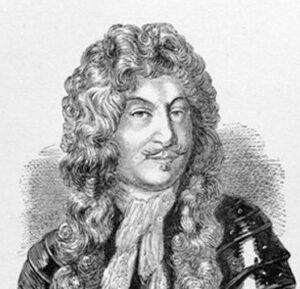Clement Marot and the translation of psalms in verse
In the 16th century Roman Catholic Church, holy mass was sung in Latin by the clergy. The reformers wanted the congregation to sing during services of worship, in a language everyone could understand. Calvin thus tried to create a French repertoire, based on the versified translations by Clément Marot (1496-1544) of biblical psalms.
The well-known court poet Clément Marot probably began translating biblical psalms from as from 1531. Influenced by humanists and by Luther’s ideas, he was impressed by the poetic beauty of the Psalms. He may have been encouraged in his work by Marguerite d’Angoulême.
In 1539, Marot gave King Francis I the manuscript of the first 30 psalms put into verse and stanzas for singing.
Musicians composed music inspired by court or secular songs. They were very successful among students and courtiers.
In 1543 Marot was threatened because of his religious ideas and took refuge in Geneva with Calvin.
Calvin and the Psalter
When Calvin fled to Strasbourg in 1538 to take charge of the French parish, psalms were already sung there in German. It was in Strasbourg that the first book of psalms in French verse appeared. Twelve of them were written by Clément Marot and the seven others by Calvin himself.
When he went back to Geneva in 1541, Calvin initiated the singing of psalms during services of worship. After Marot’s arrival, the project was further developed. Marot translated more psalms into verse, also called psalm paraphrases, and he revised the previous edition.
Music was needed for these new texts, and Calvin wished for a specific style worthy to manifest God’s glory. He had old tunes adapted and new ones composed by the successive cantors in Geneva ; the most famous of these was Loys Bourgeois. The congregation sang these tunes in unison.
Calvin also encouraged worshippers to sing Psalms at home, but with the new Geneva tunes and not the secular tunes sung in France.
When he died in 1544, Marot had translated 49 psalms into verse.
Théodore de Bèze and the completion of the Psalter
The great French humanist and poet Théodore de Bèze (1519-1616) continued Clément Marot’s work. In 1551 the Geneva Psalter was published and comprised Marot’s 49 psalms and Théodore de Bèze’s 34.
In 1562 the first complete edition entitled Pseaumes de David, comprising 150 psalms in French verse – 49 by Marot and 101 by Théodore de Bèze – was published in Geneva. It featured 123 different tunes – some attributed to two psalms. The Psalter could be said to be French because of the language, the prosody and the music.
The Huguenot Psalter
The term psautier huguenot -Huguenot Psalter- was coined in the 19th century and referred to the official Geneva hymn book comprising 150 Psalms. It spread widely thanks to the development of printing, both texts and especially music. In one year more than 30,000 copies were in circulation. It was highly considered in France and in Switzerland. In the 17th and 18th centuries, the Psalter was often printed at the end of the Bible.
The text was reviewed and updated on several occasions, right up to the present day. The main updating was done by Valentine Conrart (1603-1675). Present day Protestant hymn books still include many psalms sung to the original 16th century tune.
Three names characterise each psalm : that of the author of the text, that of the composer who adapted or wrote the melody, and that of the musician who harmonised it in four parts.
Harmonisation of the Psalms
The success of the psalms prompted many of the greatest musicians of the time to harmonise them in four or more parts. The best-known were Claude Goudimel, Claude Lejeune, Paschal de l’Estocart, Philibert Jambe de Fer, Pierre Certon.
Many Psalms were harmonised in a variety of ways. The melody was sung by either the soprano or, more frequently, by the tenor.
In the 16th century, Psalms were sung in four parts mainly at private meetings, as Goudimel put it, “to be sung to praise God at home”.
“So that, after having looked here and there, no other song will be more appropriate to praise God than the Psalms of David.” (Jean Calvin).

